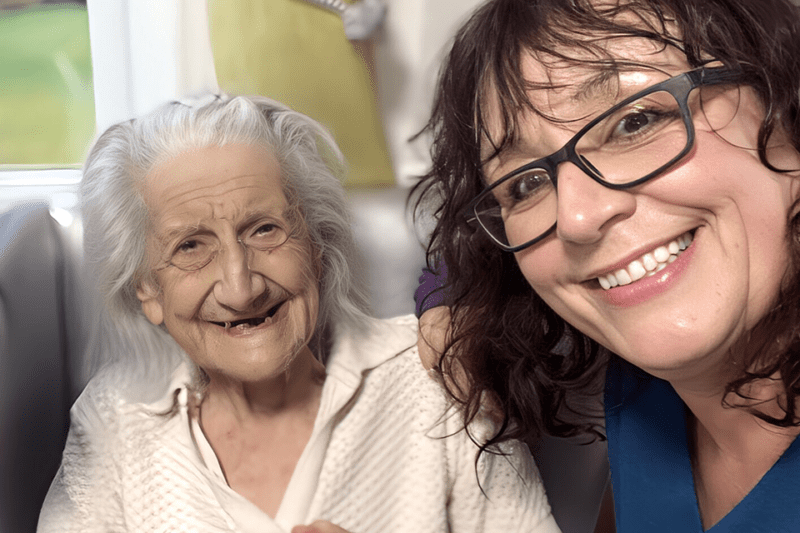
Caring for Dad, from near and afar – Simon’s story
Simon, who has lived in New Zealand for two decades, discusses how he cares for his dad who has Alzheimer’s disease and lives alone in the UK.
Many people fear that dementia runs in the family and that if a parent or grandparent has it, they will develop it too, but in the vast majority of cases, it is not inherited.
However, research has identified some rare genetic mutations for dementia that are inherited. Every person that has a parent with the faulty gene will have a 50% chance of inheriting these mutations and of developing dementia in the future. Genetic forms of dementia are more common in people under the age of 65 (known as young onset dementia).
This is a rare form of Alzheimer’s disease that is most common in people with young onset dementia. Symptoms include:
Around 30-40% cases of frontotemporal dementia (FTD) are genetic. This is known as familial frontotemporal dementia (fFTD). It is most common in people aged 40 to 60.
The most common form of fFTD is behavioural variant frontotemporal dementia (also known as bvFTD or Pick’s disease). Symptoms include:
There is a rare form of hereditary vascular dementia called cerebral autosomal dominant arteriopathy with subcortical infarcts and leukoencephalopathy (CADASIL). It affects about 1,000 people in the UK.
CADASIL causes strokes which can lead to:
Some people who have, or are suspected to have, a genetic form of dementia may wish to have genetic testing. This is a very personal decision and everyone will have their own reasons for deciding whether or not to proceed.
There are two types of genetic testing:
Before having genetic testing, the person whose family history suggests there may be a familial type of dementia should receive counselling, along with their next of kin. This takes place over several months, both before and after the genetic testing.
Finding a genetic mutation predicts that the person will develop dementia at some point in their life (unless they die of something else before the genetic mutation is activated) and can pass this to the next generation.
Some people like to know this information as it can remove the uncertainty of not knowing whether they are carrying the genetic mutation.
If a person does have a genetic mutation for dementia, they can take this into consideration when planning for the future or deciding whether to have children.
Predictive testing can also enable the person and their family to be involved in research studies into the causes, potential cures, treatment and care of familial dementia.
However, there may be disadvantages in finding out that there is a genetic mutation for dementia in the family, including the stress of knowing that the person may or will develop dementia and watching for signs that the process has started.
In addition, the knowledge that there is currently no known prevention or cure for familial dementia can lead to depression, grief and anger, and put added stress on a family’s relationships – for example, if one family member discovers they have a genetic mutation for dementia and others don’t.
It may also affect the person’s decisions about whether to have children; or if they already have children, the possibility of them having inherited a genetic mutation may cause worry and distress about how they may be affected in the future.
Whilst genetic forms of dementia cannot be prevented, some research suggests the onset can be delayed by:
Currently, there are no specific treatments for genetic forms of dementia but medication may be given for underlying conditions that could contribute to or increase the risk of dementia, eg high blood pressure, high cholesterol, heart problems or diabetes.
In cases of genetic forms of Alzheimer’s disease, medications like donepezil, rivastigmine and galantamine may help to slow the progression, but these are not effective for vascular and frontotemporal dementias.
People with a genetic form of dementia and their families often find it helpful to join a support group to connect with people who understand what they are going through. Rare Dementia Support provides information on specialist genetic dementia support groups.
If the person feels depressed or anxious about their diagnosis of dementia or the possibility of developing dementia in the future, the doctor may refer them for counselling or prescribe medication to treat the symptoms of depression or anxiety.
Our virtual clinics give you the chance to discuss any questions or concerns with a dementia specialist Admiral Nurse by phone or video call, at a time that suits you.

Simon, who has lived in New Zealand for two decades, discusses how he cares for his dad who has Alzheimer’s disease and lives alone in the UK.

Janet shares her experience caring for husband Ben and how they maintained the joy of Christmas after his diagnosis.

Shara reflects on her journey caring for Anna, her mother, who was diagnosed with vascular dementia in 2016.